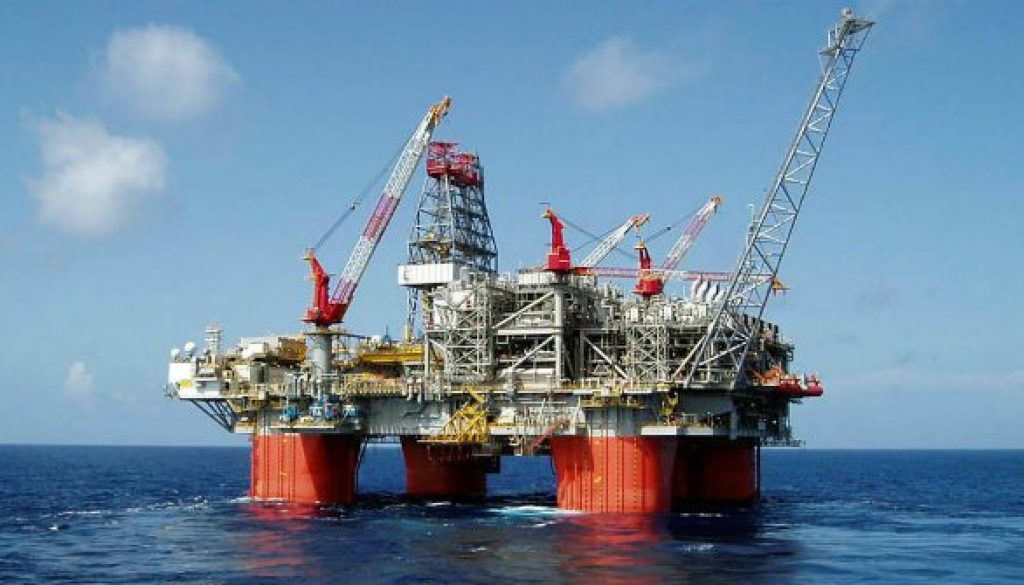Oil prices fall as Trump urges OPEC to cut prices
Oil prices fell on Thursday after U.S. President Donald Trump sent a strident tweet demanding that OPEC cut prices for crude.
The escalating trade row between Washington and Beijing, which
triggered another sell-off in Asian stocks on Thursday, was also felt in
oil markets, with China warning it could introduce duties on U.S. crude
imports at an as yet unspecified date.
triggered another sell-off in Asian stocks on Thursday, was also felt in
oil markets, with China warning it could introduce duties on U.S. crude
imports at an as yet unspecified date.
Brent crude futures LCOc1 were at 77.70 dollars per barrel at 6.53 GMT, down 54 cents, or 0.7 per cent, from their last close.
U.S. West Texas Intermediate (WTI) crude futures CLc1 were down 37 cents, or 0.5 per cent, at 73.77 dollars per barrel.
Mr Trump on Wednesday accused the Organisation of Petroleum Exporting Countries (OPEC) of driving up fuel prices.
“The OPEC Monopoly must remember that gas prices are up & they
are doing little to help,” Trump wrote on his personal Twitter account.
are doing little to help,” Trump wrote on his personal Twitter account.
“If anything, they are driving prices higher as the United States defends many of their members for very little $’s.”
“This must be a two way street,” he wrote, adding in block capitals, “REDUCE PRICING NOW!”
OPEC together with a group of non-OPEC producers led by Russia started to withhold output in 2017 to prop up prices.
Recent price rises have also been spurred by a U.S. announcement that
it plans to re-introduce sanctions against Iran from November,
targeting oil exports.
it plans to re-introduce sanctions against Iran from November,
targeting oil exports.
“A key driver of the rise in prices has been the OPEC-Russia deal to
cut oil output, compounded by collapsing Venezuelan production and the
U.S. decision to end the Iran deal,” National Australia Bank (NAB) said
in its July outlook.
cut oil output, compounded by collapsing Venezuelan production and the
U.S. decision to end the Iran deal,” National Australia Bank (NAB) said
in its July outlook.
OPEC and Russia announced in June they were willing to raise output
to address concerns of emerging supply shortages due to unplanned
disruptions from Venezuela to Libya, and likely also to replace a
potential fall in Iranian supplies due to U.S. sanctions.
to address concerns of emerging supply shortages due to unplanned
disruptions from Venezuela to Libya, and likely also to replace a
potential fall in Iranian supplies due to U.S. sanctions.
In spite of these measures to replace disrupted supplies, Goldman
Sachs said in a July 4 note to clients that “the market will remain in
deficit” in the second half of the year.
Sachs said in a July 4 note to clients that “the market will remain in
deficit” in the second half of the year.
The U.S. bank warned that supply threats were “threatening a sharp further rise in prices and global economic growth”.
Meanwhile, China’s commerce ministry said on Thursday the United
States is “opening fire on the entire world”, warning that Washington’s
proposed tariffs on Chinese goods will hit international supply chains.
States is “opening fire on the entire world”, warning that Washington’s
proposed tariffs on Chinese goods will hit international supply chains.
The comments came as Washington plans to impose tariffs on an estimated $34 billion worth of Chinese imports on Friday.
Asian stock markets on Thursday extended recent sharp losses.
China’s customs agency said on its website that Chinese tariffs on U.S. goods would immediately be implemented in retaliation.
“The decision by the U.S. administration is expected to be taken on
Friday and China is expected to retaliate immediately,” said Hussein
Sayed, Chief Market Strategist at futures brokerage FXTM.
Friday and China is expected to retaliate immediately,” said Hussein
Sayed, Chief Market Strategist at futures brokerage FXTM.
However, the Chinese government has not yet specified a date on which it may introduce duties on imports of U.S. crude.
The latter have soared in the last two years to around 400,000
barrels per day in July, worth around $1 billion at current market
prices.
barrels per day in July, worth around $1 billion at current market
prices.
(Reuters/NAN)




